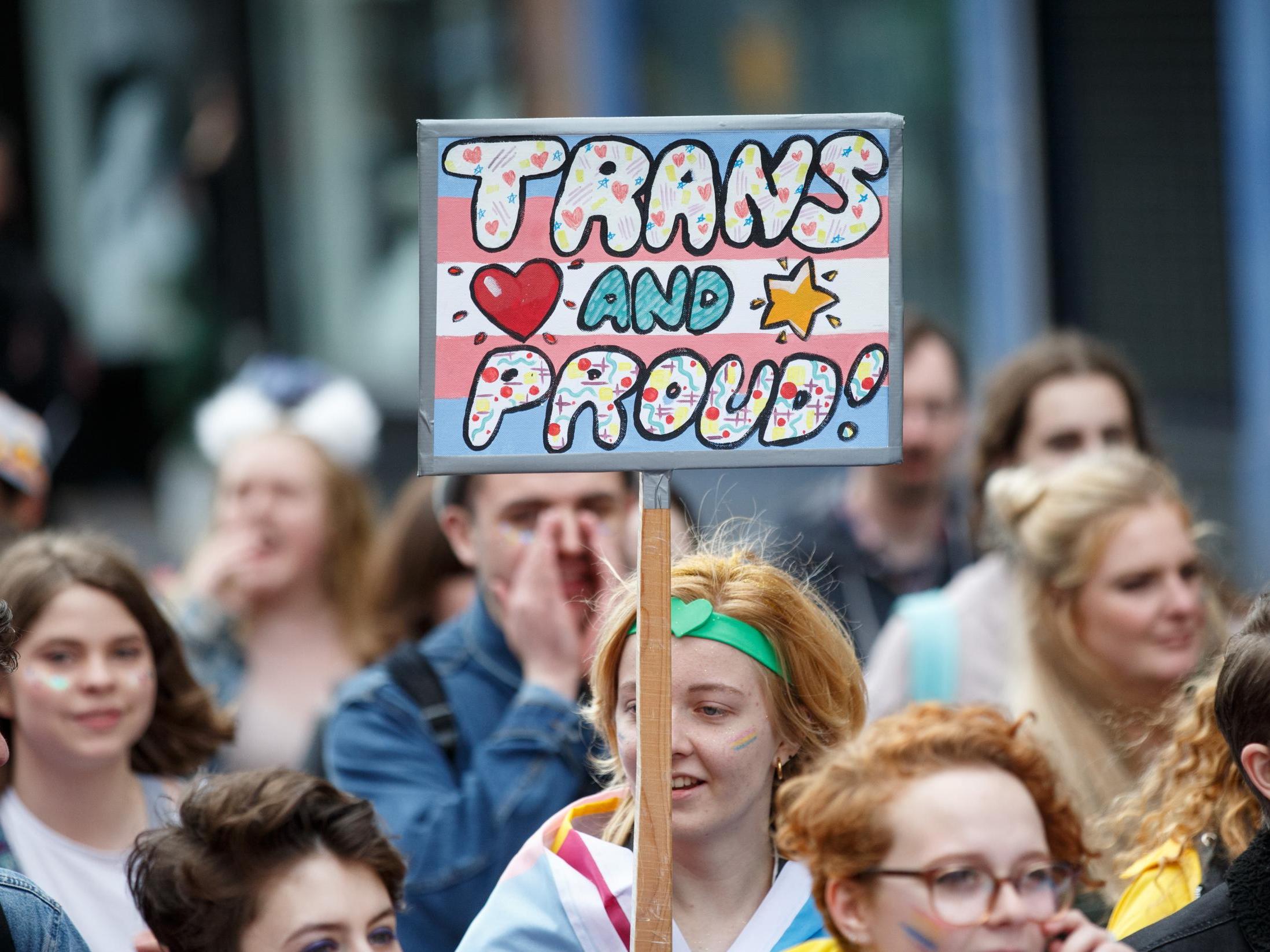Home Office asks police to record trans people using their birth sex in crime statistics
‘This is a signal to trans victims of crime that they will be misgendered if they seek support’

Your support helps us to tell the story
From reproductive rights to climate change to Big Tech, The Independent is on the ground when the story is developing. Whether it's investigating the financials of Elon Musk's pro-Trump PAC or producing our latest documentary, 'The A Word', which shines a light on the American women fighting for reproductive rights, we know how important it is to parse out the facts from the messaging.
At such a critical moment in US history, we need reporters on the ground. Your donation allows us to keep sending journalists to speak to both sides of the story.
The Independent is trusted by Americans across the entire political spectrum. And unlike many other quality news outlets, we choose not to lock Americans out of our reporting and analysis with paywalls. We believe quality journalism should be available to everyone, paid for by those who can afford it.
Your support makes all the difference.The government has asked police forces in England and Wales to identify transgender victims of crime by their birth sex in official statistics.
In new guidance issued last week, the Home Office said police should record the sex of victims and suspects according to their birth certificate or their gender recognition certificate (GRC), a legal marker of having changed gender.
A spokesperson for the department told The Independent that the guidance is voluntary but could be made permanent after April 2023 depending on police feedback.
They said it is up to each force how they determine what is on someone’s birth certificate or GRC, and that officers should separately ask people their gender identity if it differs from those documents.
However, since only a tiny fraction of trans people have a GRC, the policy means most trans people could be misgendered in official statistics, for example by counting trans women as men if they are attacked or sexually assaulted.
It is a victory for gender-critical feminist campaigners who believe that trans women should be excluded from women’s toilets, changing rooms, healthcare facilities, domestic violence shelters, and prisons.
Mallory Moore, a researcher with the UK-based Trans Safety Network, said the change would have a “chilling effect” on trans people reporting crimes.
“This is a signal to trans victims of crime that they will be misgendered if they seek support,” she said. “I already know people who regularly just don’t report things, because there’s nothing to be gained from reporting things to an institution that’s hostile towards you... this is only going to make that worse.”
Ben Collier, a lecturer at the University of Edinburgh who specialises in how government agencies record sex, agreed: “This will further undermine the trust and legitimacy of the police for LGBT people... any practical implementation of this would be extremely cruel, both to victims of crime and people that have committed crimes.”
The new Home Office guidance was first revealed by an FOI request from campaign group Keep Prisons Single Sex, which argues that failing to record criminals’ birth sex allows “male crime [to be] hidden in female data”.

Forces are required to send data to the Home Office for published statistics on police-recorded crime. Experts consider these less reliable than face-to-face crime surveys, and their official status within overall crime figures was downgraded by the UK Statistics Authority in 2014 because they were no longer deemed reliable.
Keep Prisons Single Sex said the Home Office previously gave no guidance on how police should record people’s gender and sex, with 16 forces saying they went by what gender people appeared to be or identified as.
The Home Office spokesperson said the new policy is intended to bring police data into line with the 2021 census for England and Wales, which was changed to define sex according to birth certificates or GRCs after a successful legal challenge by gender critical activists. Police in Scotland are not affected.
However, Dr Collier said it would be an “absolute nightmare” for police forces to collect such documents from every victim, suspect, or witness, since many people do not have access to their birth certificate.
Instead, officers are likely to ask for proof only when they are in doubt about someone’s birth sex, meaning the policy would unfairly target trans people and others who flout gender norms, Dr Collier said.
“To do that in any real way that isn’t specifically placing an additional burden on people that are gender non-conforming, or are perceived to be gender non-conforming, would be totally impractical,” they said. “So effectively, it’s just a tool to bully gender non-conforming people and bully transgender people.”
Gender-critical activists welcomed the move. “This means for the first time we will know how many male offenders appear in the female crime stats,” said Fair Play for Women, which led the legal challenge to the census.
“This is a direct result of our win in the High Court last year... [it] means that male rapists will no longer be recorded as female in police crime stats.”
However, Keep Prisons Single Sex said the policy did not go far enough because it does not force police to record the birth sex of trans people who have obtained a GRC.
“Sex registered at birth is the variable that is of the greatest significance and explanatory power. Legal gender is not,” the group said.
“Whilst the effect of this request would likely be a reduction in the number of cases of male offending allocated to the female subgroup, the real possibility of a significant and dramatic impact on the data for female offending remains.”
Join our commenting forum
Join thought-provoking conversations, follow other Independent readers and see their replies
Comments